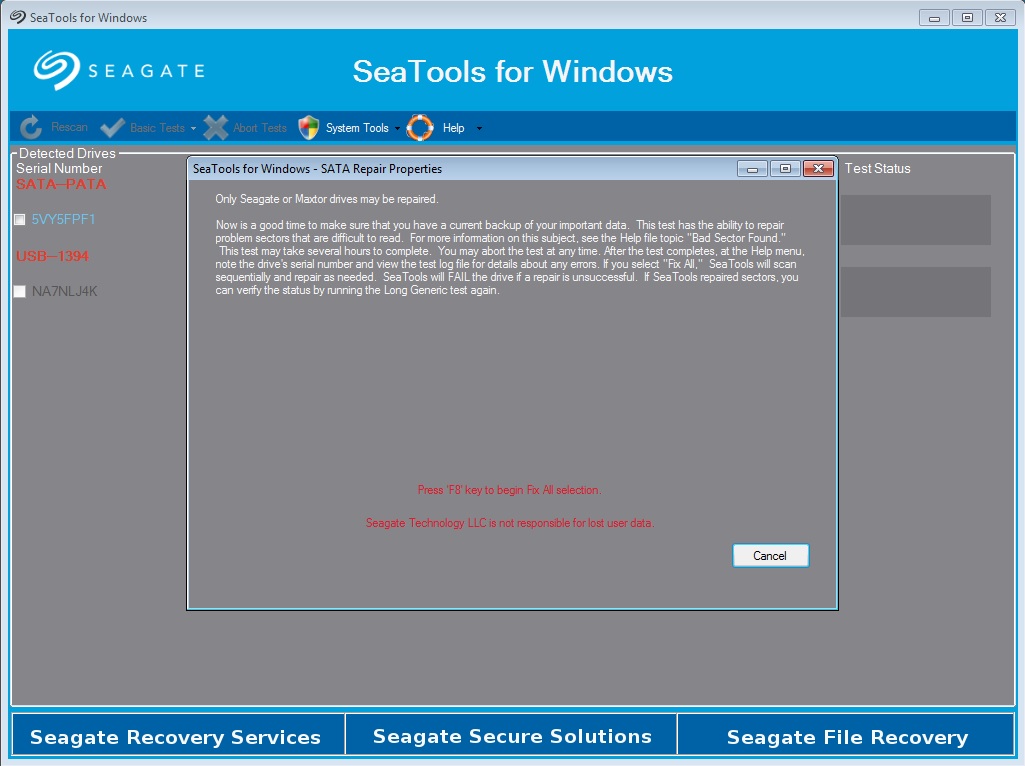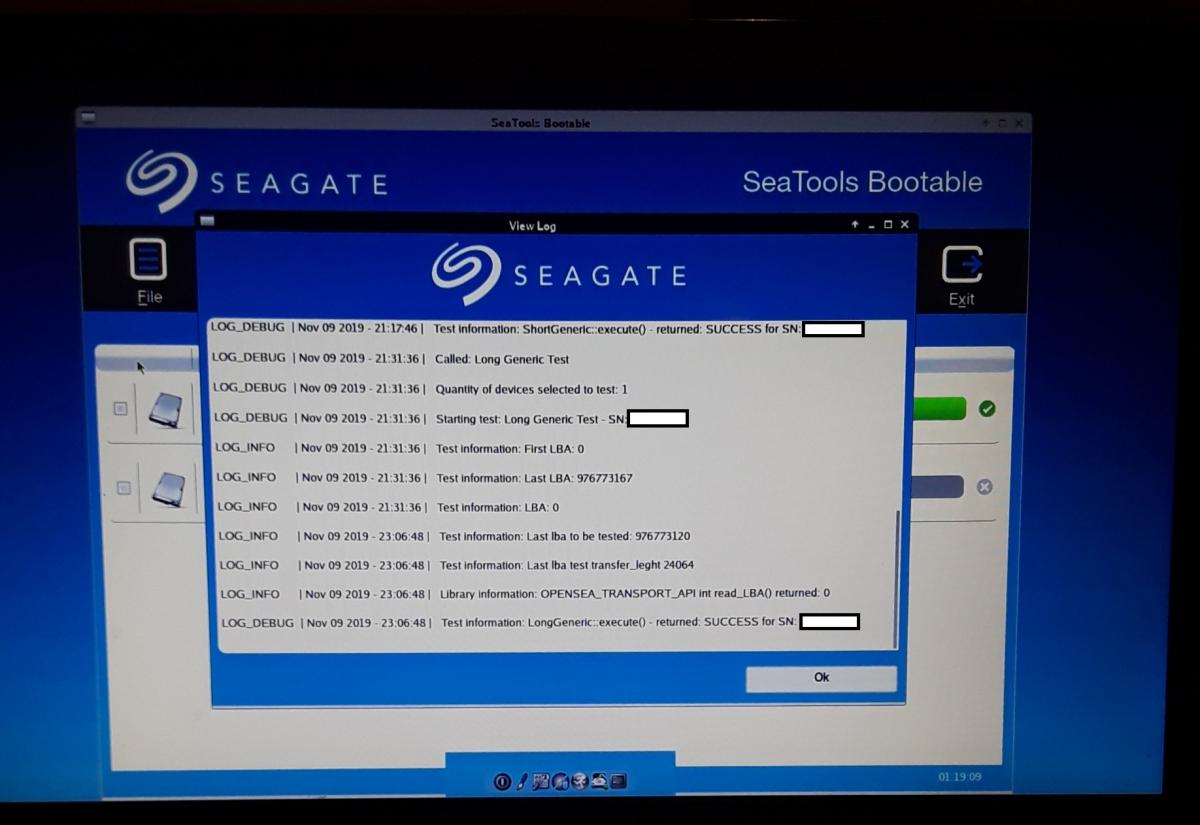

It could be because of the heat caused by a defective fan, which might linearly result in a deteriorated drive. It could be because of a Firmware problem causing the system to not recognize the hard disk. Without a hard disk, it would look like you are playing a big game of cricket with a Ping-Pong bat. Let’s assume you have a hard disk, and it’s been faulty. Sure, one can still use a computer - or a laptop - without a drive, by stuffing the whole operating system in a flash drive (preferably Ubuntu in that case). And Long test passes fine.Seatools for Windows: Hard disks are an integral part of any computer system. Two different drives purchased at different time seems too improbable to me. I'm inclined to think that it is a false alarm. The Seatools Short Generic test also fails on it at the same phase of the test. It is also a Seagate Expansion External hard drive, but a different model, 3TB (STEB3000300). Long Generic - Pass 23:26:08 <- how can Long test pass when Short fails? Here is the log from SeaTools (I use Windows 7): - SeaTools for Windows v1.4.0.4.

The Seatools don't offer SMART tests, maybe because it is external USB drive. I'm running now a "Fix All Long" test that will take another 10 hours The Short Generic test still fails after it. Seatools have a "Fix All Fast" test, which I ran. How can a Long test that is supposed to check the whole disk pass, but a Short test that checks only some parts of the disk fail? Then I tried Long Generic test, it ran for 10 hours, and eventually passed! I tried it several times with the same result. Then it starts Inner Scan and immediately fails at 0%. It passed the Short DST test, but failed the Short Generic test. It is connected to a computer via USB 3.0Įven though it is brand new I decided to run Seatools tests.

I've got a new Seagate Expansion External hard drive, model STEB5000100 (5TB) from Amazon.


 0 kommentar(er)
0 kommentar(er)
